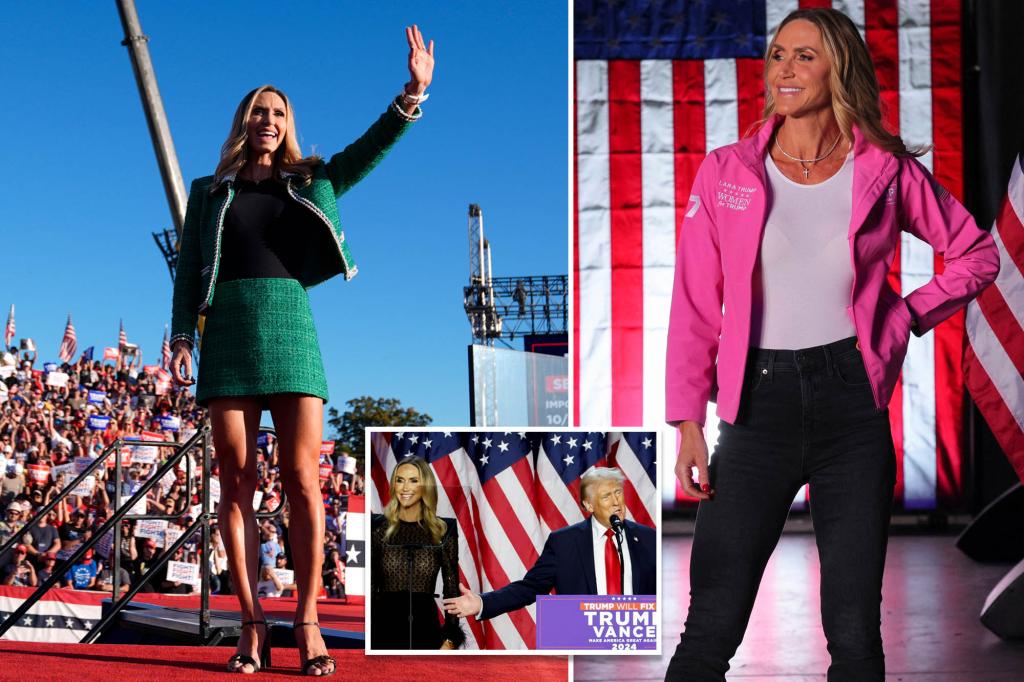Lara Trump, daughter-in-law of former President Donald Trump, has publicly expressed her strong interest in potentially succeeding Marco Rubio as Florida’s senator. Rubio’s nomination as Secretary of State under the incoming Trump administration has created a vacancy that is generating considerable political speculation. Lara Trump’s statement,affirming her serious consideration of the Senate seat, has placed her at the forefront of potential candidates. This aspiration aligns with her recent resignation as co-chair of the Republican National Committee (RNC), a move she attributes to the completion of her intended goals and a desire to explore new opportunities. Her departure from the RNC marks the end of a tenure that began in March and coincided with her father-in-law’s return to the White House. This transition has fueled speculation about her political ambitions and the possibility of a Senate bid.
Lara Trump’s potential candidacy has garnered support from prominent figures within the Trump sphere, notably Elon Musk, the CEO of Tesla and co-chair of Trump’s “Department of Government Efficiency.” Musk, along with his mother Maye, has publicly endorsed Lara Trump, highlighting her youth, intelligence, and outspoken nature as desirable qualities for a Senate role. They believe her presence would disrupt the established dynamics of the Senate, often characterized as an “old man’s club.” This endorsement underscores the perception of Lara Trump as a fresh voice capable of challenging the status quo and resonates with those seeking new blood in political leadership. The confluence of her family connections, political experience, and public endorsements positions her as a serious contender for the Senate seat.
However, the path to the Senate is not without complexities. Florida Governor Ron DeSantis holds the authority to appoint Rubio’s replacement, and he is reportedly taking a deliberate approach to the selection process. While Lara Trump is believed to be among DeSantis’ top choices, the governor has emphasized a thorough vetting process involving multiple candidates. This measured approach suggests a careful consideration of various factors, including political alliances, public perception, and individual qualifications. DeSantis, a former Republican challenger to Donald Trump, has not explicitly indicated a timeline for the appointment, adding to the uncertainty surrounding the selection process. The dynamics between DeSantis and the Trump family further complicate the situation, creating a political landscape fraught with potential maneuvering and strategic considerations.
The timeline for Rubio’s departure from the Senate also remains uncertain. While he is expected to be confirmed as Secretary of State, the exact date of his transition remains fluid. This ambiguity adds another layer of complexity to the appointment process, as DeSantis cannot officially name a successor until the vacancy is formally created. Rubio’s continued presence in the Senate, even if temporary, could influence the timing and dynamics of the selection process. This period of uncertainty allows for continued speculation and lobbying by various candidates and their supporters, further intensifying the political drama surrounding the Senate seat.
Adding further complexity is the array of potential candidates vying for the Senate seat. DeSantis’ reported shortlist includes several prominent figures within Florida politics, including Lt. Gov. Jeanette Nuñez, Attorney General Ashley Moody, former House Speaker Paul Renner, Secretary of State Cord Byrd, former House Speaker Jose Oliva, and chief of staff James Uthmeier. Each candidate brings their unique political background, accomplishments, and support base, creating a competitive field of contenders. This diversity of potential successors underscores the significance of the Senate seat and the high stakes involved in the selection process. DeSantis’ eventual choice will have significant implications for the political landscape of Florida and the balance of power within the Republican party.
In conclusion, Lara Trump’s expressed interest in the Florida Senate seat has ignited a complex political scenario. While she enjoys significant support within the Trump camp and possesses relevant political experience, the final decision rests with Governor DeSantis, who is navigating a multifaceted selection process. The presence of other qualified candidates, the uncertain timeline of Rubio’s departure, and the evolving political dynamics between DeSantis and the Trump family contribute to the intricate nature of the situation. The coming weeks will likely witness intensified lobbying, strategic maneuvering, and public discourse as the contenders vie for the coveted Senate position. The outcome of this process will undoubtedly shape the political landscape of Florida and have broader implications for the Republican Party as it navigates the post-Trump era.


